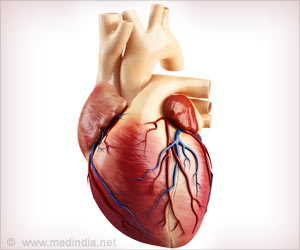Stretches of DNA containing the same version of a gene, one inherited from each parent, is associated with increased heart disease risk.

CAD is a complex, multifactor disorder originating from a complicated interplay of multiple genetic and environmental factors. Nearly one in six men and one in ten women die from CAD.
Paraskevi Christofidou, from the Department of Cardiovascular Sciences, at the University of Leicester, said, "ROHs are regions of the genome with identical copies inherited from parents and traced back to a common ancestor.”
"Contributions of ROHs to the genetic architecture of CAD are not known. The primary goal of this project was a comprehensive analysis of association between genome-wide homozygosity measures and CAD in individuals of white European ancestry. A secondary aim was to explore the association of ROHs and gene expression in human monocytes and macrophages."
The team analyzed 24,320 individuals from 11 populations of white European ethnicity. Individual ROHs showed significant associations with monocyte and macrophage expression of genes located nearby.
Excess of ROHs is a potential contributor to CAD and therefore support a theory on the role of recessive component in the genetic architecture of CAD. More stretches of DNA containing the same version of a gene, one inherited from each parent, is associated with increased heart disease risk.
Advertisement
"Research to improve our understanding of how our genes can increase our risk of a heart attack is helping us find new ways to target the effects of those genes, which could lead to new drugs to prevent these deadly events," said Christofidou.
Advertisement















